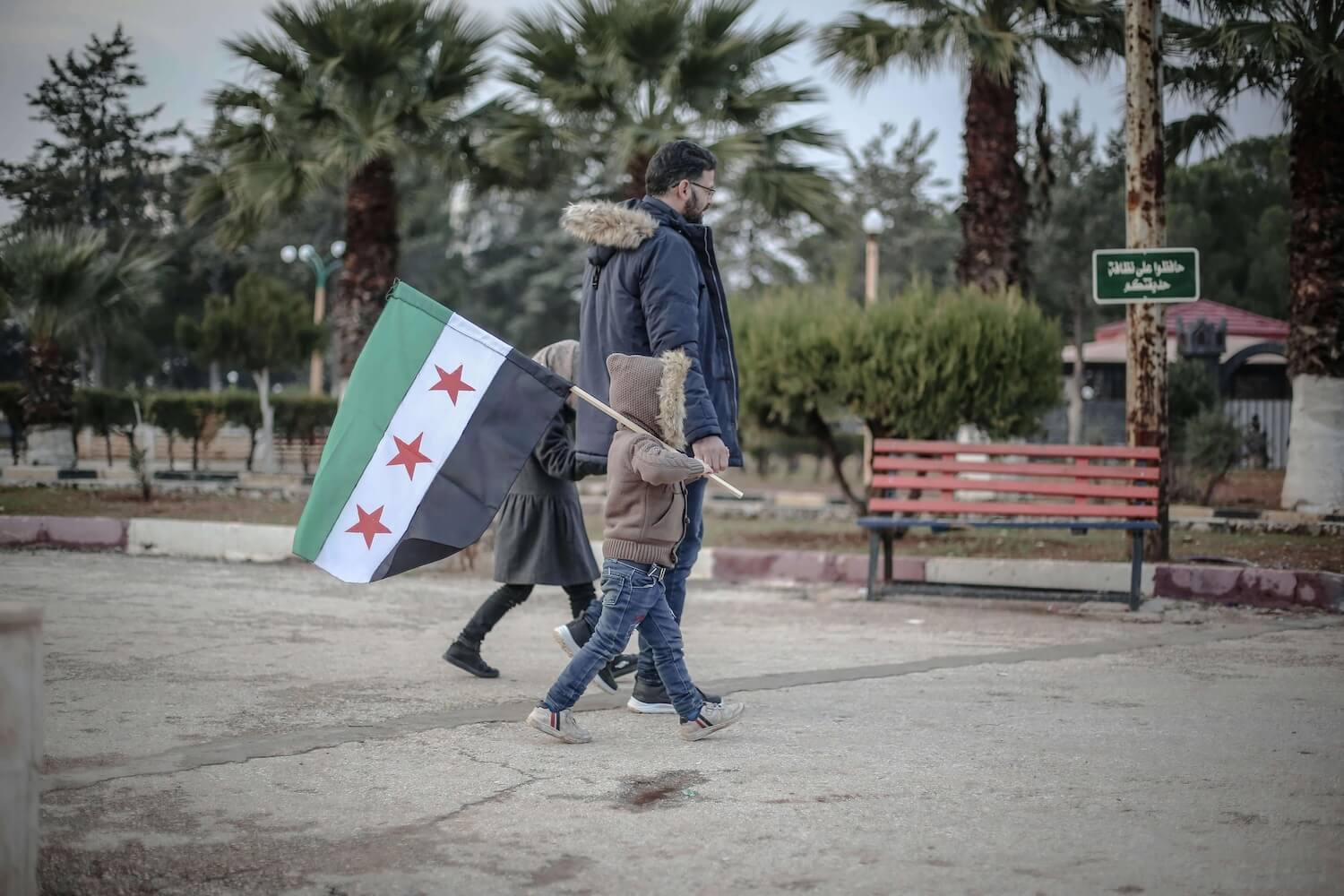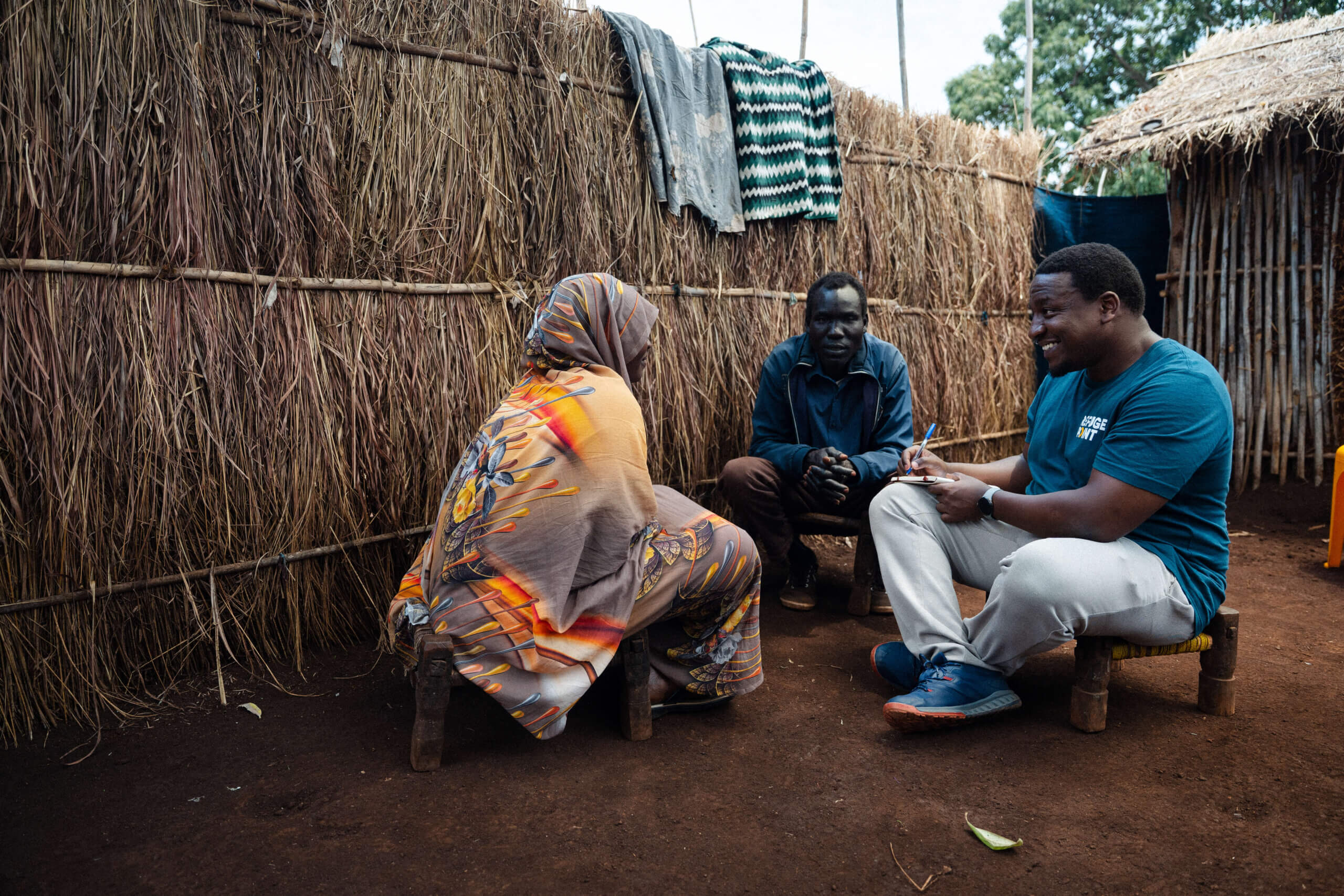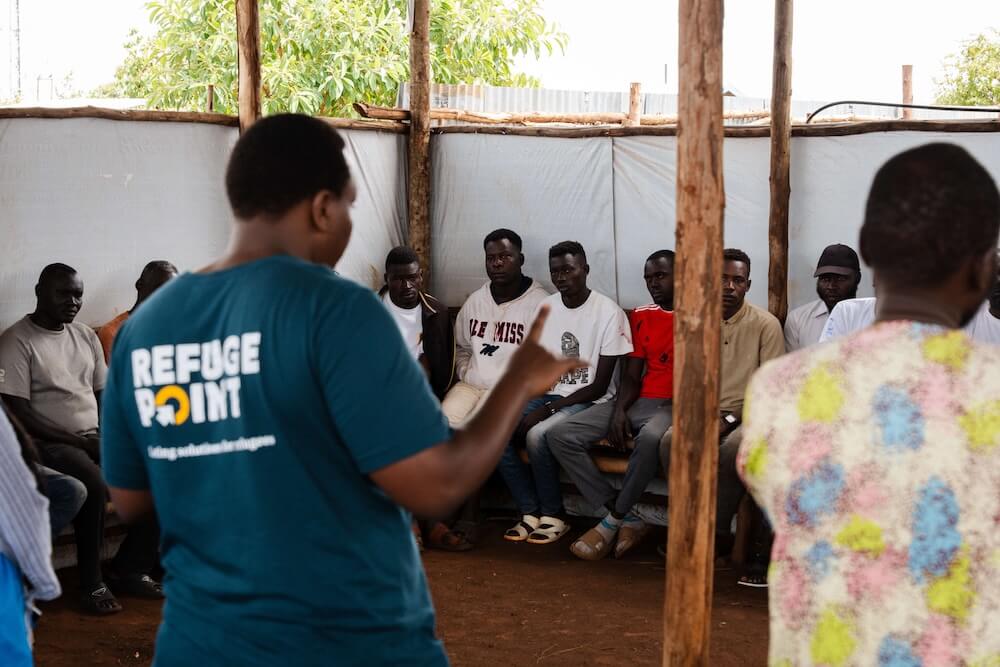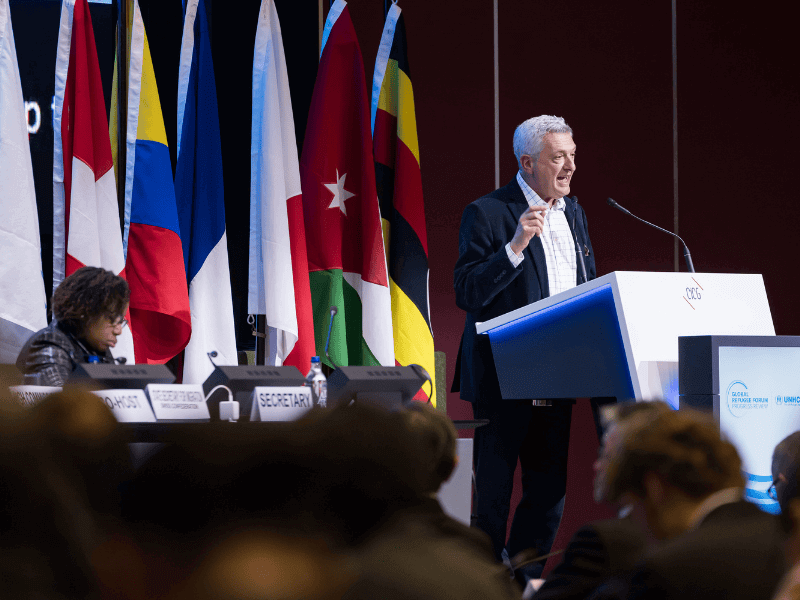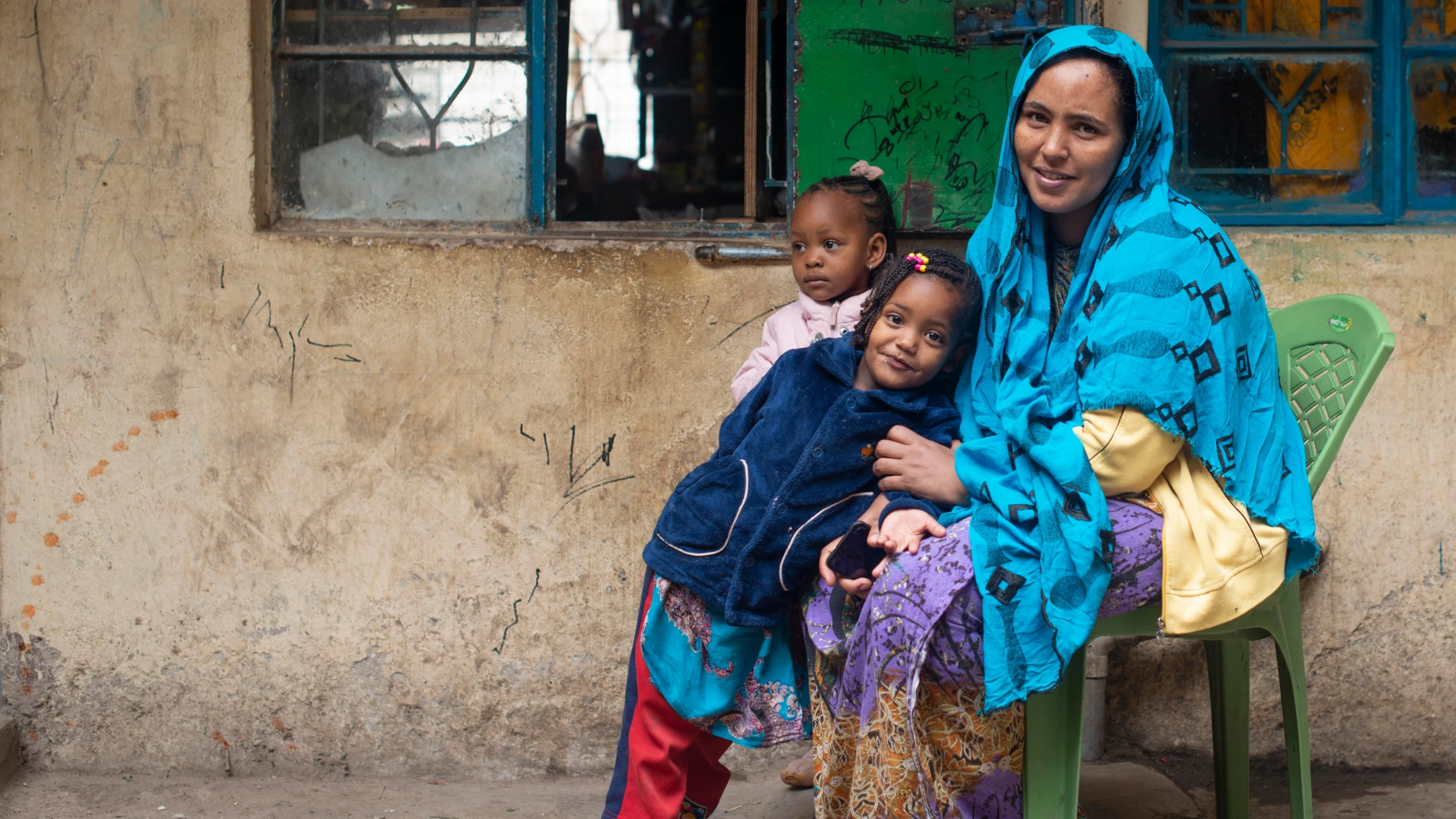Voluntary return, also known as voluntary repatriation, involves refugees returning in safety and dignity to their country of origin. This durable solution is considered the preferred option whenever conditions in the country of origin allow for return.
Unfortunately, voluntary return is challenging in many contexts and elusive for many refugees. However, for Syrian refugees specifically, recent political changes have opened new pathways for return that were previously impossible. UNHCR estimates more than 1.4 million Syrians have returned home since the fall of the Assad regime in December 2024, marking a significant shift in displacement patterns.
The international community recognizes three primary durable solutions for refugees, each addressing different circumstances and possibilities:
Going home is what millions of people around the world dream of, but often cannot do. This solution requires that conditions in the home country have improved sufficiently to ensure returning refugees can rebuild their lives in safety and dignity.
Local integration allows refugees to legally, economically, and socially integrate in the host country, availing themselves of the national protection of the host government. This solution enables refugees to establish permanent roots in their host communities.
Resettlement enables refugees to relocate to a new country, where they can obtain legal status, receive international protection, and eventually secure permanent residence. This solution typically serves the most at-risk refugees who cannot safely return home or integrate locally. Other visa pathways, such as family reunification and labor mobility, may also lead to a durable solution.
Unfortunately, the vast majority of refugees are unable to achieve one of these durable solutions. In 2024, just 4.4 percent of refugees found a durable solution, and 67 percent were living in protracted situations of five years or more. RefugePoint is working to expand access to these solutions for refugees around the world.
RefugePoint works on monitoring voluntary returns through a partnership with UNHCR. Our staff document the aspirations and experiences of returning families. In the second quarter of 2025, RefugePoint experts in Türkiye conducted comprehensive interviews with 230 Syrian families, totaling 566 individuals. Notably, 273 of these returning refugees (48 percent) were children, highlighting the significant impact of return decisions on younger generations.
Many of these families had been displaced in Türkiye for over a decade. Several children born in Türkiye were experiencing their first journey to Syria. The families were eager to return home following political changes in Syria that made it possible.
Among the many stories shared by refugees returning to Syria, one stood out: a story of resilience, hope, and family unity. A 28-year-old father arrived at the Türkiye side of the border gate with his two young children, ready to return to Syria. He was reuniting with his wife, who had been deported by the Türkish Migration Authority to Syria in August 2024 due to legal registration issues. On the day he and his children returned, she anxiously waited on the Syrian side to welcome them home.
For months, the father had balanced the demanding roles of caregiver and breadwinner in Türkiye, navigating the challenges of single parenthood while supporting his family. Despite the hardships, he remained steadfast in his commitment and hope for reunification with his wife.
The voluntary return process provided a clear path forward. His journey exemplifies the power of family unity and the human spirit’s perseverance amid adversity.
As he crossed the border, he expressed joy and relief, saying he was truly excited to return home and raise his children together with his wife. His return marked not just a physical journey but the start of a new chapter for him and his family.
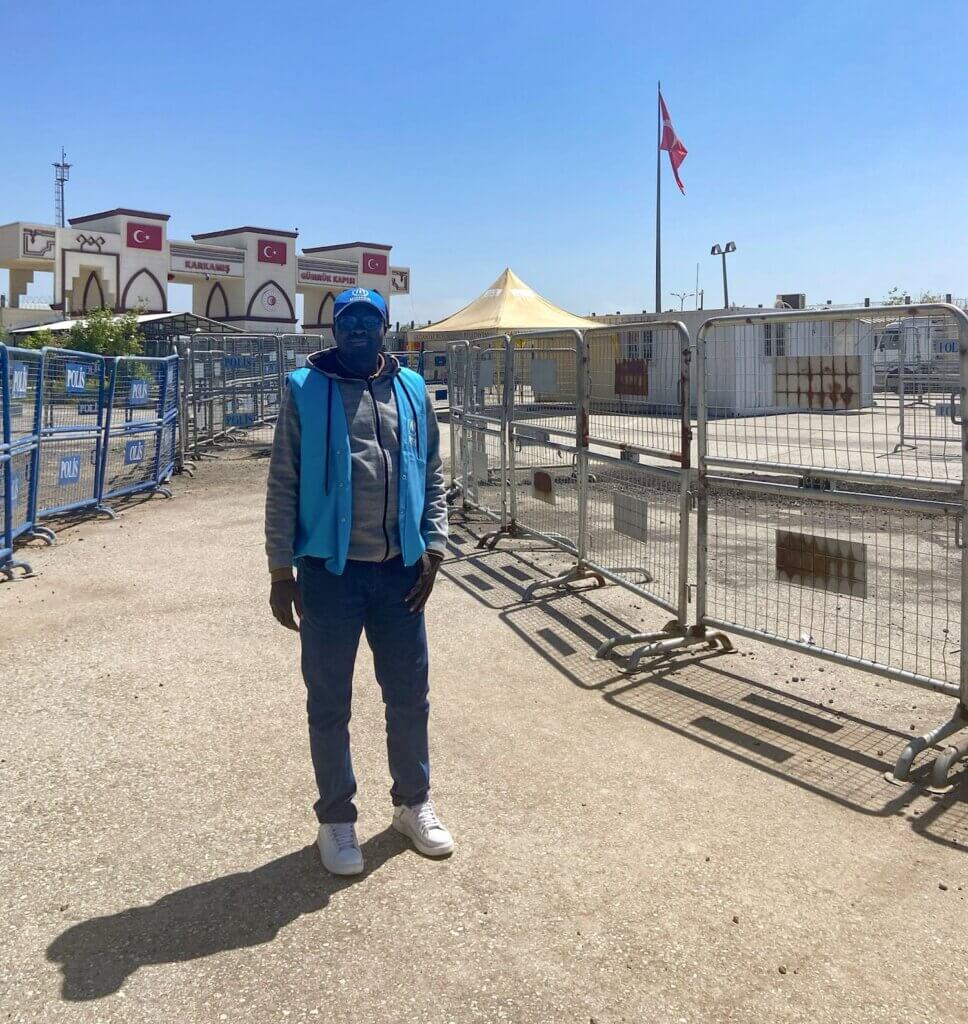
A RefugePoint Child Protection Expert at the Karkamiş Border Gate in Kilis Province, Türkiye after the young father was able to voluntarily rerturn to Syria.
While voluntary return represents an important durable solution, significant challenges persist:
Documentation and Legal Status: Many refugees face complications related to legal registration, identity documents, and administrative procedures that can complicate return processes.
Safety Assessments: Determining when conditions are sufficient for safe return requires ongoing monitoring and evaluation of political, security, and economic factors in countries of origin.
Reintegration Support: Successful voluntary return extends beyond border crossing to include access to housing, employment, education, and social services in home communities.
Family Separation: As demonstrated in RefugePoint’s monitoring, deportations and forced separations can create complex scenarios requiring careful case management.
The Syrian situation exists within a broader global displacement crisis. By the end of 2024, there were 42.7 million refugees globally, with 69 percent originating from just five countries (Syria being the second).
RefugePoint supports refugees as they seek to live lives of dignity and self-reliance where they are. For those who cannot remain safely in their host communities and also cannot return home, we provide casework support to help them access lasting solutions such as resettlement, labor mobility, family reunification, and, when possible, voluntary repatriation. In 2024, we helped more refugees access these life-changing pathways than ever before. Since 2005, RefugePoint staff have supported 184,719 people to access lasting solutions.
Monitoring voluntary returns serves several critical functions. It documents the experiences of returning refugees, identifies challenges in return processes, and provides evidence for policy and program improvements.
This father’s reunion with his family demonstrates that when proper frameworks and political conditions align, voluntary return can offer meaningful solutions for families seeking to rebuild their lives.
As conditions evolve in Syria and other contexts globally, organizations like UNHCR, RefugePoint, and other NGOs play essential roles in responding to emerging needs and opportunities and contributing to evidence-based approaches to durable solutions. Each documented return provides insights for improving future programs and supporting families seeking safe, sustainable, and voluntary return.
To learn more about our work to increase pathways to safety for refugees, click here.
RefugePoint envisions an inclusive world where all refugees can safely build stable, connected, and thriving lives. Our Theory of Change (ToC) shows how we’re turning that vision into action. The...
Over the past year, the world has shifted in ways that have made life far more dangerous and uncertain for refugees. Support systems that once offered stability are eroding: global...
This week marks the 2025 Global Refugee Forum Progress Review in Geneva, Switzerland: a time for the international community to take stock of our progress on the pledges that we...


